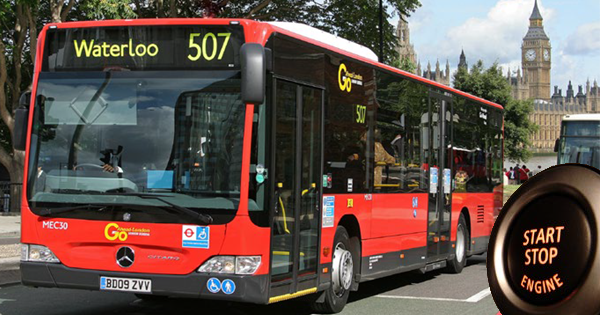Voith DIWA.6 automatic transmission is engineered to deliver stop-start functionality during idling mode, thus reducing fuel consumption by 5-10 percent
Stop-start technologies provide an efficient solution for the reduction of fuel consumption and emissions in city buses. The Voith DIWA.6 automatic transmission is engineered to deliver stop-start functionality during idling mode, thus reducing fuel consumption by 5-10 percent in combination with a capable engine.
Installed in more than 100 buses in the United Kingdom, the Stop-Start Technology has proven its performance and reliability in service since July 2015. During normal operating conditions, at bus stops, red traffic lights and traffic load, city buses spend up to 40 percent of their time in idling mode. During this period the Voith DIWA.6 automatic transmission allows the bus to disengage its driveline in order to reduce fuel consumption and emissions. Particularly designed for urban traffic, the DIWA.6 is capable of stop times up to 60 seconds without any influence on the start-up readiness of the bus. Depending on the duty cycle, this enables fuel savings of 5-10 percent. While most dis-engageable technologies within the industry are still at an early stage, Voith’s DIWA.6 Stop-Start Technology has already proven its full operational capability. Since July 2015 more than 100 buses have successfully been in service in several cities all over the UK; 150 additional vehicles equipped with DIWA Stop-Start are commissioned to date. If desired by the operator, Voith offers to analyze operational data like the amount and duration of stop-starts in detail. This allows an individual adaptation of the transmission management and maximizes the benefit of the technology against the background of the particular route.
Besides the reduced operational expenses, the DIWA.6 Stop- Start Technology also attaches greater importance to the bus sector as an essential part of public transport networks. In context with the fuel savings, it also reduces the emission of CO2, NOx, particulates and noise. Since the technology directly contributes to clean cities, it paves the way for operators to meet environmental directives or receive governmental funding. Among others, the UK’s Department of Energy & Climate Change granted such a funding through its ‘Carbon Plan’ which provided EUR 112.5 million (£88 million) for the purchase of low carbon emission buses between 2010 and 2015.
#Stop, #Start, #StopStartTechnologies, #FuelSaving, #VoithDIWA6, #automatictransmission, #fuelconsumption


